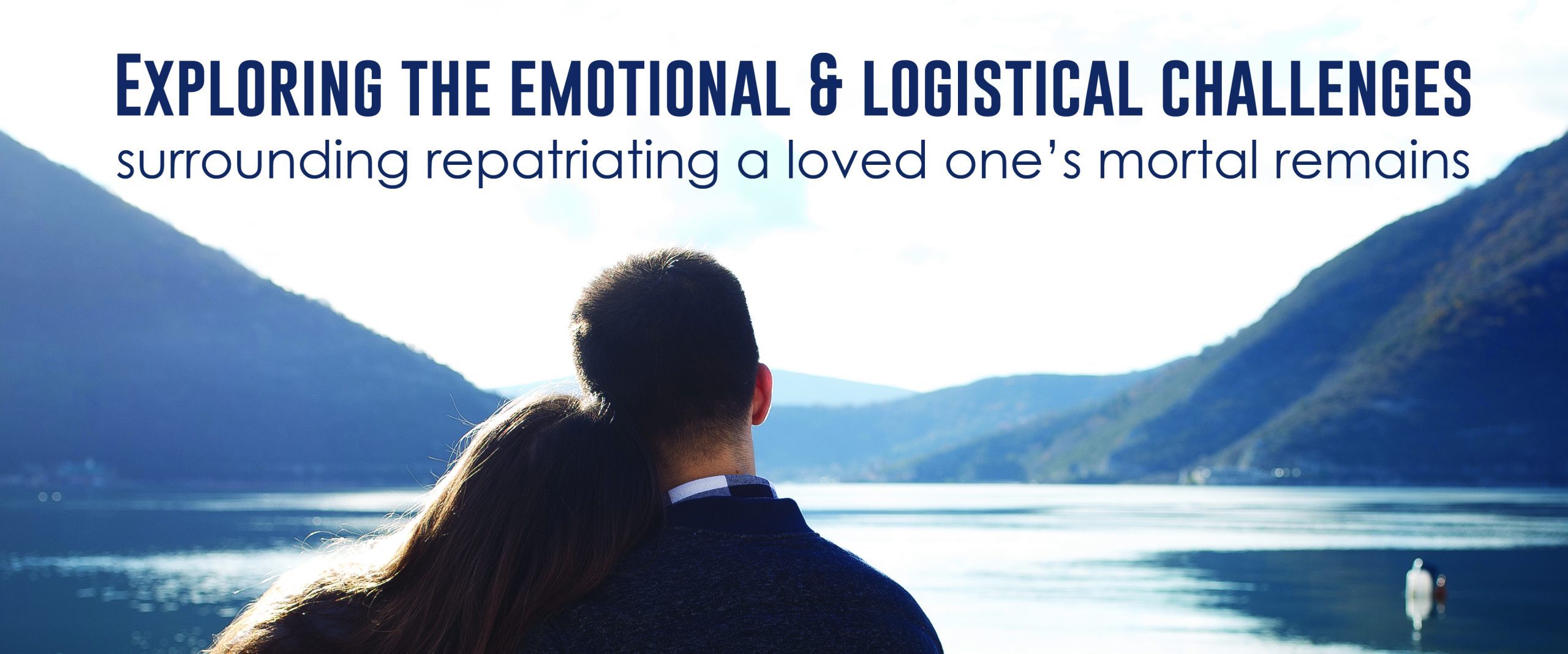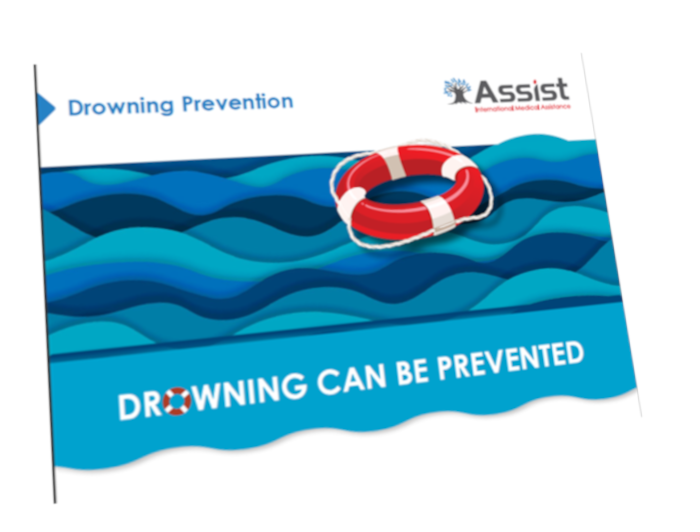An avoidable tragedy

Compassion, counselling and experience are key when it comes to repatriating a member’s mortal remains
That was certainly the case for Unisure health insurance members and parents Mark and Jane Jones* when they were holidaying in Europe. Although surrounded by family and friends, their daughter, Claire*, tragically drowned one afternoon in the swimming pool without anyone noticing in those first few crucial minutes.
A paramedic was called to the scene of the accident and tried unsuccessfully for 66 minutes to resuscitate her. Our Unisure Assist team remained on standby throughout, later supervising Claire’s admission to ICU at the nearest hospital so that she could be kept on life support while her parents agonized over what to do next.
Stories like Claire’s aren’t easy to tell but we feel it’s as important to share these cases as it is to share the ones with positive outcomes. Even if one reader can benefit from the lessons these difficult cases teach us, or one more life can be saved as a result, then our efforts would have been worth it.
Here are four lessons that the Jones’s tragedy can teach all of us:
1. Do everything you can as a parent to prevent a water accident from occurring in the first place
According to WHO, the highest drowning rates are among children globally are 1 – 4 years, followed by children 5 – 9 years. It can take as little as 25 seconds for a young child to drown1, even in the shallow end or in a baby pool, and more often than not the child doesn’t yell or splash, they simply sink very quickly.
Unfortunately, the Jones’ tragic story of little Claire drowning silently with many adults around the pool isn’t an uncommon one. In group settings, adults often assume that someone else is watching the child, but in actual fact there should always be one dedicated person keeping their eyes on the child at all times, sitting within arm’s reach of them in case something happens, and they need to act quickly.

For readers with young children, please take a moment to read our Drowning Prevention Guide here to familiarise yourself with how to prevent an accident from happening. Print out this information and keep it somewhere prominent as a constant reminder to yourself and your loved ones.
2. Understand the importance of a repatriation benefit, as well as counselling services, in your international health insurance plan
It was Unisure Assist’s Operations Director, Cristina Meixieira, that first received Jane’s panicked call when she realised that Claire had drowned, and it would also be Cristina personally assisting the family to liaise with numerous doctors (both in their holiday destination and in their home country) for second opinions on what, if anything, could be done.
“After many difficult conversations, Jane and her husband accepted the news from at a specialist children’s hospital in their home country that there was nothing else that could be medically done for Claire,” Cristina explains.
“At that point, we understood that they were going to be confronted with making a series of overwhelming emotional and logistical decisions, such as whether or not to donate Claire’s vital organs, when to say goodbye, and how to get her body back to her home country for her funeral. That’s when our Unisure Assist repatriation benefits really become an invaluable source of strength and support for our members.”
3. Make use of the professional support and guidance offered by your health insurer and medical assistance partner to navigate both the grieving process and the logistics that precede a repatriation flight
Cristina and her team took it upon themselves to organise counselling services to arrive at the hospital and help the family come to terms with Claire’s death. The counsellors not only helped the Jones’s cope with their grief and emotions in the moment of saying goodbye, but also acted as mediators when the doctor in charge asked the family to consider donating Claire’s vital organs (a process that can be extremely traumatic for a family which hasn’t even come to terms with their loved one’s death).
The repatriation benefits on the Jones’s health insurance plan fully covered the transportation of Claire’s body to her home country. Had they not had this policy and benefit in place, the cost of personally paying for the repatriation can be crippling, with the only other alternative being cremation, which is against the Jones’s religious customs. Not to mention the paperwork and documentation that would be needed from the family – something which our teams are accustomed to dealing with on behalf of our members.
“The administrative side of medically managing a repatriation case is frightening; we’re talking about hundreds of hours of phone calls and paperwork, and endless delays if you don’t know the process inside out,” Cristina explains.
“At a time when a family is grieving and still in shock, it would be virtually impossible for them to manage this kind of pressure. Not only are we experienced in what we do, but we also keep the family abreast at every stage of the process, because we understand how urgently they want to return their loved ones to their home country for the funeral and final farewell.”
Once the embalming process has been completed on the body and a special coffin has been organised for the flight, our team liaises with the morgue, the funeral homes (both in the country where the death takes place and in the home country) and organises the relevant flights and transportation. It’s also our duty to ensure that all of the government-issued legal and customs documentation is in order, both in the originating and end-destination country, to avoid any further possible delays.
4. Find an insurer that’s always there for you when you need them most, and that offers ongoing support long after an incident has taken place
Cristina not only attended little Claire’s funeral (virtually), but she has been in regular contact with the Jones’s ever since the incident. Thanks to their generous health insurance benefits, which fully cover psychological and psychiatric support, our team has organised for Claire’s siblings to receive ongoing play therapy and for Jane to attend regular psychologist appointments. Mark and Jane will also start marital counselling soon, and then they will attend family counselling sessions together as a family as well.
“All of this is covered by their health insurance benefits,” Cristina explains. “It’s crucial that one understands the impact that a tragedy like this can have on a family’s wellbeing, which is why grief counselling for as long as is deemed medically necessary is highly recommended.”
Unisure – offering healthcare with a human touch
At the end of the day, what makes the Unisure Assist care so unique is the fact that we’re there for our members when they need us most, anywhere and anytime.
“That’s really what healthcare with a human touch is all about,” Cristina explains. “Our members are not just a number, and our team isn’t just delivering an automatic email reply. We offer 24/7/365 emergency services and assistance, and you will always deal with a caring, compassionate and efficient human being on the other end of the line.”
“We care for you when you’re sick, we evacuate you if you’re in a life-threatening situation, and we also care for you if you don’t survive and pass away. We’ll be there for your loved ones to help them navigate that difficult journey and offer mental health support throughout the process as well.”
Unisure would like to extend our sincere condolences to the Jones family and wish them kindness and compassion on their journey of healing. From the Unisure Assist team, please know that Claire will live on forever in our hearts.
If you want to know more about Unisure Assist and our international medical assistance services, please visit www.unisuregroup.com/international-medical-assistance/.
*Names have been changed to protect the identities and confidentiality of our Unisure members
Source:
- Parents.com, The Sad Truth About Drowning
- Interview with Cristina Meixieira, Unisure Assist Operations Director, 20 October 2022



